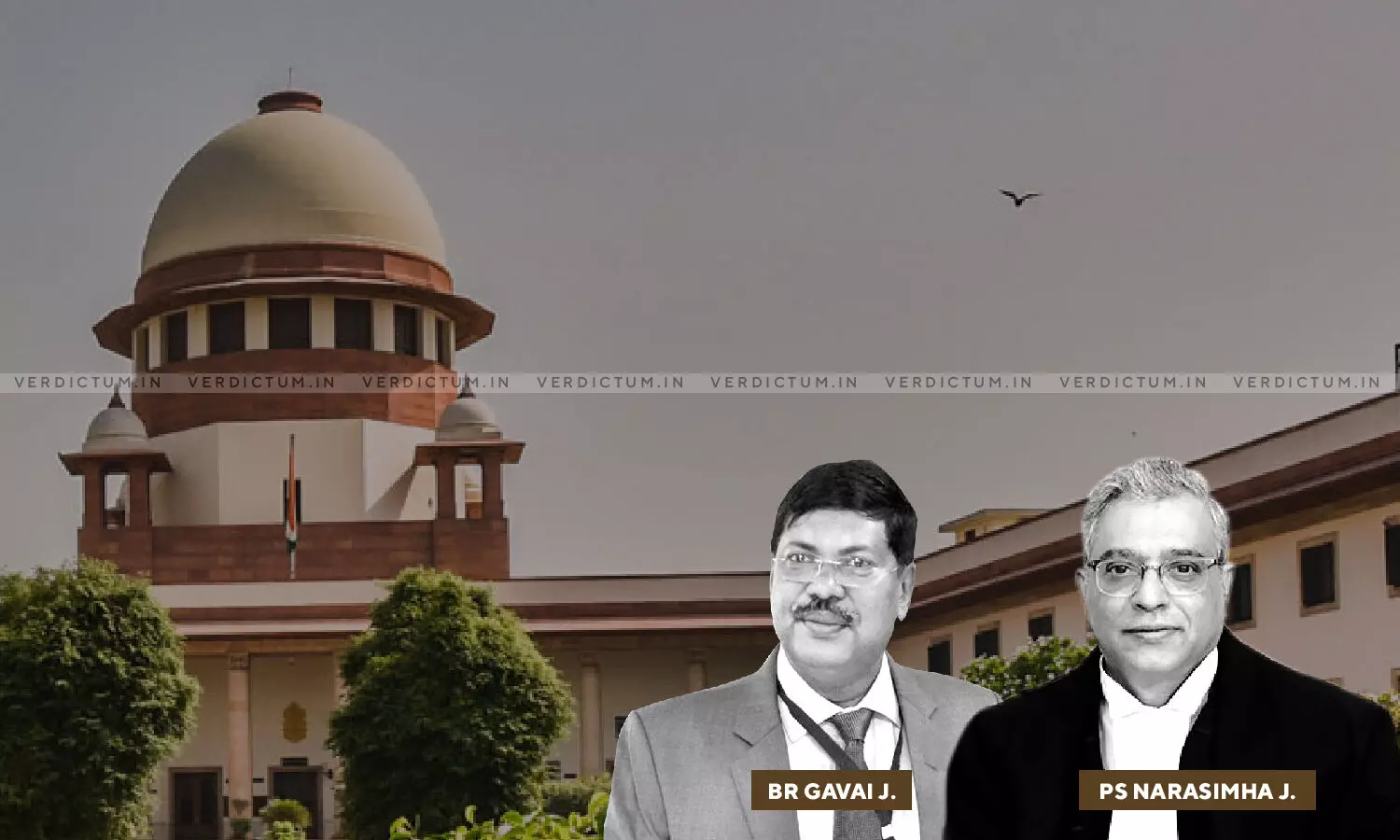
No Intent, But Knew That Their Actions Were Likely To Cause Death: SC Reduces Sentence
 |
|The Supreme Court modified the sentence of two accused convicted under Sections 148, 149 and 304 of the Indian Penal Code, 1860 (IPC).
The accused had approached the Supreme Court challenging the conviction order of the High Court. The High Court had modified their sentence to undergo rigorous imprisonment of 7 years.
The Court observed that the Appellants lacked the intent to kill the deceased. However, the Court also noted that the nature of the injuries sustained by the deceased indicated that the Appellants had acted with the knowledge that their actions were likely to result in the deceased's death
The Bench comprising Justice BR Gavai and Justice PS Narasimha observed, “We, therefore, find that it cannot be said that the appellants had an intention to cause the death of the deceased. However, from the nature of injuries, it is clear that the act was done with the knowledge that the injuries were likely to cause the death of the deceased”.
Senior Advocate Sushil Kumar Jain appeared for the Appellants and Advocate Harmeet Singh Ruprah appeared for the Respondent.
An appeal was filed challenging the judgment and order passed by the High Court. The Appellants were convicted under Section 148 and Section 304 (Part-I) of the IPC read with Section 149. They were sentenced to undergo rigorous imprisonment for 02 years for the offence under Section 148 IPC and 10 years for the offence under Section 304 (Part-I) with a fine of Rs.2,000/- (Rupees Two Thousand Only). The High Court, while confirming the conviction under 304 (Part-I), reduced the sentence to seven years.
The Court observed that there were nine injuries, all of which were lacerated wounds. Lacerated wounds could only be caused by the blunt side of a weapon. This suggested that the Appellants may not have intended to kill the deceased, as they did not use the sharp side of the weapons.
The Bench noted that the Appellants did not have the intention to kill the deceased, but that their actions were likely to cause death. However, the Court observed that from the nature of the injuries, it was clear that the act was done with the knowledge that the injuries were likely to cause the death of the deceased.
“We find that from the nature of injuries, it cannot be said that the instant case would either fall under the Section 325 or Section 326 of the I.P.C. The question, therefore, that will have to be considered is as to whether the conviction under 304 (Part-I) is sustainable or requires alteration to 304 (Part-II)”, the Bench noted.
The Court therefore altered the conviction from Section 304 (Part-I) to Section 304 (Part-II) of the IPC and modified the sentence of the Appellants to 5 years' rigorous imprisonment.
Accordingly, the Court partly allowed the Appeal.
Cause Title: Pop Singh & Ors. v State Of Madhya Pradesh (2023 INSC 1038)
Click here to read/download Judgment